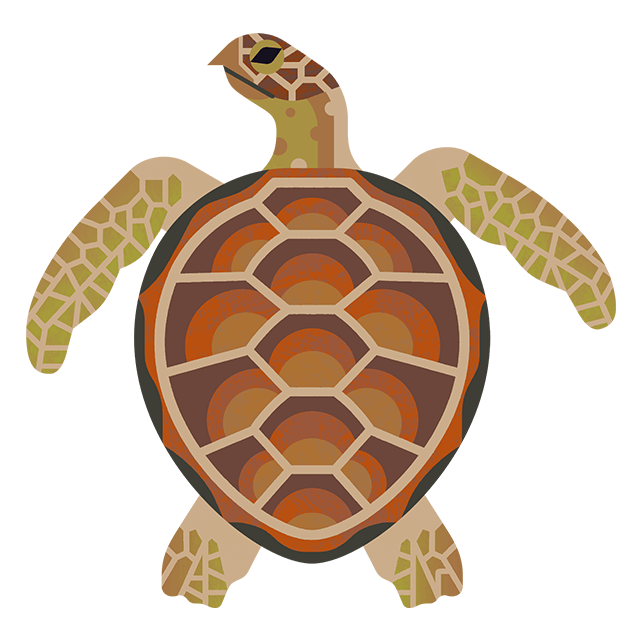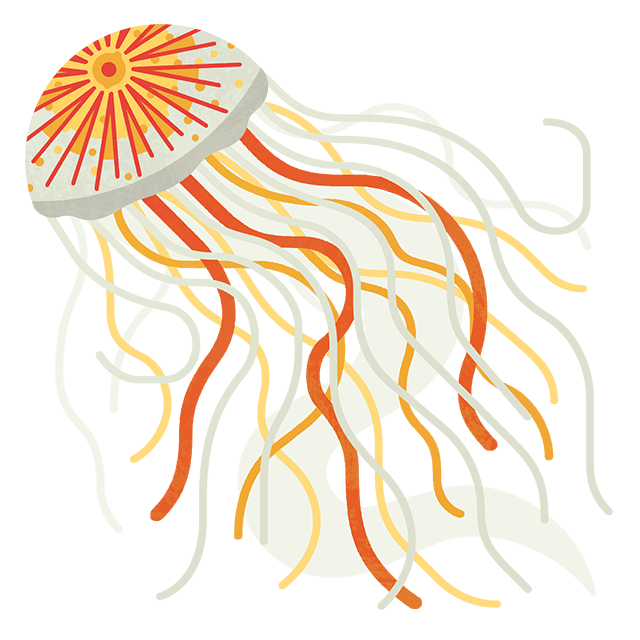
Community Voice Method
6 minute read
For over a decade, we've been working with communities to develop a shared appreciation and deeper understanding of the all the ways in which the ocean benefits them.
What is Community Voice?
If we're going to recover and safeguard our ocean, the people who use and depend on it need to be part of shaping a future that is good for us and good for the ocean.
An inclusive and holistic approach in marine conservation
We do what we can to make sure that conversations about how our ocean is used and managed consider the many different ways in which people care about and depend on it. This is just one of the ways in which we demonstrate our commitment to actively work towards a more inclusive and holistic approach in marine conservation.
Find out more about how the Community Voice Method works in the short films on this page:
Our Community Voice projects
Our Community Voice programme kicked off in 2009 and we have now used this versatile, film-based approach to engage communities in a variety of issues in the UK and the UK Overseas Territories.
Bringing people together to share what they value and their vision for the future, we’ve enabled inclusive conversations about how challenges can be met that have resulted in positive change for people and the places they love and depend on.

Credit: Monkey Business Images via Shutterstock
Wild Coast Sussex
Wellbeing and childhood memories
Wild Coast Sussex aims to inspire people living along the coast in Sussex to cherish their local sea and act in more ocean-friendly ways. Wild Coast Sussex is a partnership project and we're leading on the work with 16-25 year olds.
As part of our project research, we filmed young people and asked their perspectives. By grounding the conversation in value, we were able to have really meaningful conversations that really explored the diverse needs and concerns of young people living in Sussex. We build these values into our project plan, including a series of beach events for young people as a result.
Wild Coast Sussex is a collaborative, 3 year, National Lottery Heritage Fund funded project, thanks to money raised by National Lottery players. Wild Coast Sussex is led by Sussex Wildlife Trust, with Marine Conservation Society, Sussex Inshore Fisheries and Conservation Authority and Brighton Sealife.
Living Coast
The Living Coast project was designed to help us learn more about how people, including those from underserved or minority communities, in Portsmouth and along the Durham Coast connect with the coast and sea.
The project was particularly focussed on what barriers there may be to connection and benefit particularly with regard to use of the England Coast Path.
The Living Coast project was delivered for Natural England and in collaboration with the University of Greenwich and Community Voice Consulting.
Common Ground
We designed Common Ground to actively emphasise the values that connect people to their local coast and sea and guide thinking on how management reflects, supports or impact on local values.
The film was shown at workshops in Suffolk, Norfolk and Lincolnshire which brought together a wide range of people, views and values.
We used guided deliberation to explore the shared values that connect people to their coastal and marine resources, key issues in the district and potential actions that could help address them. This fed into the local authority’s strategic planning.
Common Ground was delivered in partnership with the Eastern Inshore Fisheries and Conservation Authority and with support from Community Voice Consulting. The Marine Conservation Society continues work in Norfolk through Agents of Change
Seeking Balance
The Seeking Balance project was designed to support the Sussex Inshore Fisheries and Conservation Authority in consulting with a broad range of local stakeholders on management measures for Kingmere and Beachy Head West Marine Conservation Zones.
The workshops used a Multi Criteria Analysis approach to weigh up the benefits and trade-offs of different potential measures and fed in to decision-making about management.
The Seeking Balance project was delivered in collaboration with the Sussex IFCA and with support from Community Voice Consulting and the University of the Highlands and Islands.
The Marine Conservation Society continues work in Sussex through our Agents of Change programme.
Beachy Head East MCZ
In February 2023, the Marine Conservation Society helped facilitate workshops for the Sussex IFCA's informal consultations regarding marine management measures for Beachy Head East Marine Conservation Zone. The aim was to develop local and shared understanding of community values and aspirations, as well as support active engagement as part of the IFCA management discussions.
Using the Community Voice Method, a film was shown to members of the local community to prompt deliberation during the meetings. 'Coastal Views From Sussex' is available to watch here.
As a result of the consultation and engagement with the community, a summary report about the workshops was produced, and can be accessed below:
Talkin' Turtle
Talkin’ Turtle was designed to engage resource users in the design of updated management measures for the long-standing, traditional marine turtle fishery in the Turks & Caicos Islands.
The film showcased a broad range of views on the value and uses of turtles and how this resource should be managed, and was screened at a diverse set of workshops across the islands. The project resulted in new management measures being drafted and brought into law in 2014.

Green turtles over seagrass in the Turks and Caicos Islands
Credit: Peter Richardson
Talkin’ Turtle was delivered in collaboration with the Turks and Caicos Islands Department of Environment and Coastal Resources and with support from Community Voice Consulting.
The Marine Conservation Society continues work in the Turks and Caicos Islands to assess the impact of these management measures, and will be employing Community Voice Method in the British Virgin Islands and Montserrat to develop stakeholder-led solutions to marine management issues
A Marine Turtle Action Plan for Montserrat
We've been working with the Government of Montserrat, the University of Exeter, and communities, to develop a Marine Turtle Action Plan for Montserrat. We used the Community Voice Method to find out what the people of Montserrat wanted for their turtles, and how they felt they should be protected and managed in future.
We ran the CVM project between 2021-22, and recorded community feedback at the workshops. This was combined with the biological information gathered through our turtle research in Montserrat, and was used to inform A Marine Turtle Action Plan for Montserrat. This information is also currently informing new turtle conservation policy recommendations that will be provided to the Government of Montserrat.
Turtles in Montserrat - listening to local voices
This film puts the issue of turtle conservation into local context.
Turtle Conservation - what works for Montserrat?
This film deals with possible conservation measures for turtles and their habitats in Montserrat.
The project was funded by the UK Government’s Darwin Plus initiative, which provides vital funding to support projects aiming to protect the natural environment of the UKOT’s.
Turtles in the Virgin Islands: Balancing conservation and culture
We're working with the Government of the Virgin Islands, the Association of Reef Keepers, the University of Exeter, and local communities to develop a Sea Turtle Recovery Action Plan (STRAP) for the British Virgin Islands. The current legislation that regulates the use of turtles in the Virgin Islands is out of date, and this project will recommend changes to bring it up to date.
To enable local voices to inform how their turtles should be managed and protected in the future, we used our Community Voice Method to capture views about this issue. In April 2023, we screened the Community Voice Method film at workshops around the Virgin Islands and recorded lively and constructive discussions amongst the participants. These views alongside the biological information gathered through our turtle research in the Virgin Islands are currently informing the STRAP and recommendations to the Government of the Virgin Islands.
Turtles in the Virgin Islands: Balancing conservation and culture
The project was funded by the UK Government’s Darwin Plus initiative, which provides vital funding to support projects aiming to protect the natural environment of the UKOT’s.
Sharks and Rays in Anguilla: Listening to Community Voices
We’re working with communities and local partners in Anguilla to improve awareness and understanding of sharks, their role in local ecosystems and livelihoods, and how best to protect them. The Anguilla Shark Conservation (ASC) project is a three-year, collaborative project funded by the UK Government’s Darwin Plus scheme and represents an exciting partnership with local NGO the Anguilla National Trust (ANT), the Government of Anguilla, and the University of Exeter.
This project will develop a national Shark Research Action Plan that will gather the data we need to better understand how to safeguard Anguilla’s sharks and rays and their habitats for future generations. To ensure this plan has plenty of community input and considers local cultural values, we employed the Community Voice Method. Through this process we developed a film featuring local voices which was screened across Anguilla. These workshops also stimulated plenty of debate on what additional data and research is needed to effectively manage Anguilla’s sharks and rays, and the national Shark Research Action Plan will be sure to factor in these local cultural values.
Sharks and Rays in Anguilla: Listening to Community Voices
Contact us to learn more
For more information about the Community Voice Method or any of the projects shown here, please contact us.



